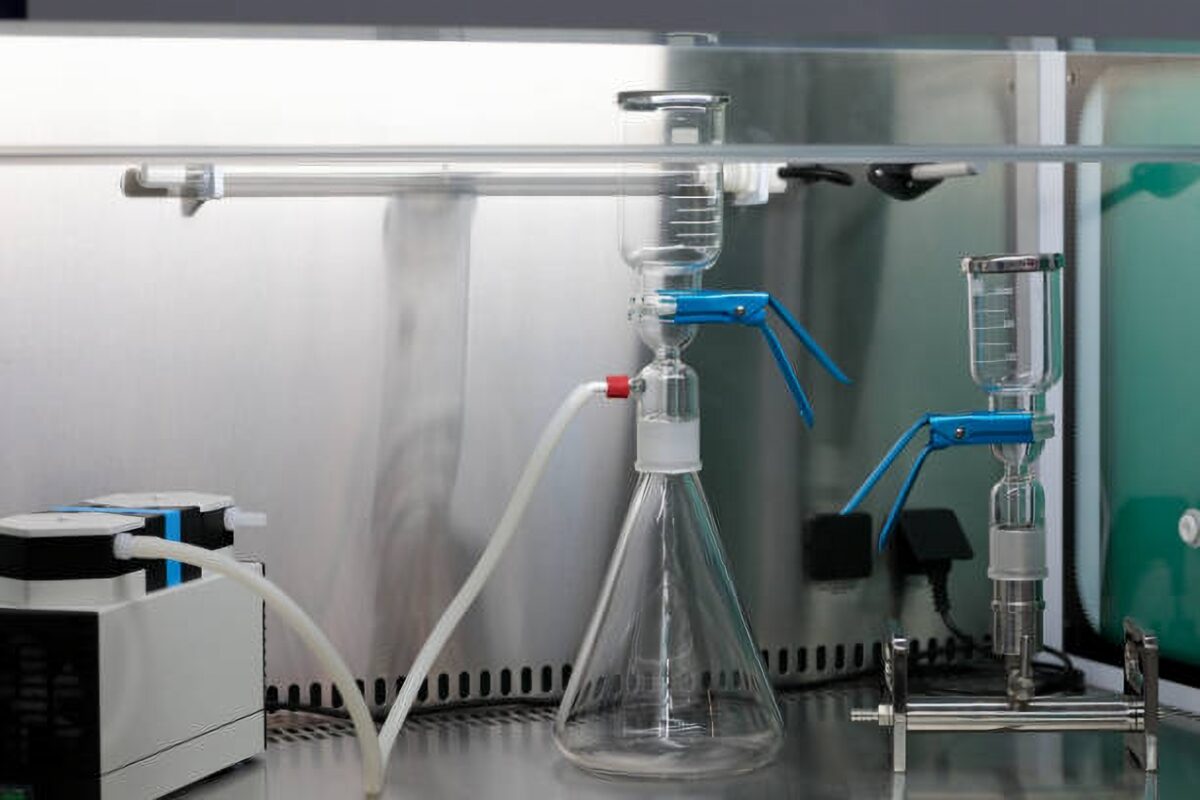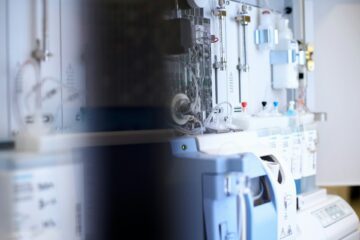Choosing an appropriate lab vacuum pump is very important if one wants to get the best results in his/her research. Pumps play the critical role of maintaining vacuum in many laboratory applications especially when dealing with intricate machinery like the rotary evaporators. Knowledge of types of vacuum pumps and their uses are crucial when it comes to decision making especially when dealing with rotary vacuum evaporator manufacturers. This guide will help you understand the issues that determine the choice of lab vacuum pumps and will help you choose the necessary equipment that will improve your experiments’ outcomes and optimize the work of your laboratory.
Lab Vacuum Pump Basics
Lab vacuum pumps are useful equipment which are needed to ensure the conditions for lots of scientific procedures like freezing, evaporating, degassing, etc. These processes require dependable vacuum generation in an effort to deliver consistent efficiency. Besides, the vacuum pumps are applied to keep certain conditions, and to prevent air contamination in sensitive experiments, during which even the slightest admixture can dramatically affect the outcome. Familiarity with specifics of the known types of vacuum pumps and how they operate – maximum attainable vacuum, flow rate, chemical compatibility and so forth will guide you in making the right choice of the pump for usage in your laboratory. Such understanding is especially important if the company uses specialized precision instruments such as rotary vacuum evaporators from leading manufacturers, where the correct operation mode of the pump and the evaporator should be matched to achieve the required results.
Types of Vacuum Pumps
Therefore, it becomes a matter of importance, as to which type of vacuum pump is to fit certain laboratories’ demands or requirements. Some of the choices that are particularly suitable for specific situations include the diaphragm pumps that do not use oil; they are ideal for places where contamination is completely ignored such as in analytic chemistry as well as pharmaceuticals research. Rotary vane pumps, in contrast, are ideal for applications requiring a great vacuum such as in solvent reclamation processes or for the transfer of gases in a chemical synthesis process. A conceptual comparison of the working characteristics and weaknesses of every type of pump will equip you with the factual knowledge required for arriving at the best purchasing decision for your laboratory. Also, depending on the nature of the operation environment and nature of the substances to be pumped, you will be guided to select a pump that is not only serving the current need, but it is also versatile enough to meet future needs hence optimizing on the return on investment.
Selecting A Suitable Pump for Use
Selecting the right lab vacuum pump that will be used for the rotary evaporator goes hand in hand with consultation prompted with rotary vacuum evaporator manufacturers’ specifications. These specifications often involve such factors as required vacuum, solvents, and the ability to handle loads. Choosing a pump that would have the above characteristics helps in maintaining the right environment in the evaporator with a view ofNY achieving the required rate of solvent removal or sample concentration. In addition, the pump should enable the creation of the necessary vacuum levels and maintain it extremely well so as to enable the right evaporation rate as well as to avoid sample degradation. Such a level of control is important in operations that require a uniform vacuum such as during the preparation of samples or in regeneration of solvents since fluctuations in vacuum have effects on the results or experiments.
Maintenance and Operational Considerations
When it comes to the usage of lab vacuum pumps it is very important to provide proper maintenance and operational care to the devices. Applying a proper maintenance plan that consists of frequent check-ups and necessary service may increase the service life duration of the equipment considerably. Indeed, issues like how easy it is to use the equipment and where it is located for routine maintenance or its integration with other systems in the laboratory also determines the efficiency of a laboratory. Lab personnel should be conducted training on correct operation and maintenance of vacuum pumps which will help in avoiding mistakes in their operation and also increase the life expectancy of the vacuum pumps. Additionally, the utilization of current practices and technology in maintenance performance could assist in increasing vacuum pump efficiency which, in turn, contributes to the increased production capacity of the laboratory and low probabilities of experiencing problems arising from equipment malfunctions.
Economic Factors and Energy Efficiency
Other factors that should not be overlooked while choosing a lab vacuum pump include the monetary worth of the equipment, amount of money that will be spent on the operating and maintenance, and the time that the equipment will take for repairs. ‘Expensive’ models might turn out to be cheaper in the long run because they consume less energy and so require more cost to operate as compared to less efficient models. Often these models are environmentally friendly and support research’s sustainability goals, lowering the environment’s negative effect. Also, the high initial cost can be offset by frequent repair or replacement costs, while buying the best quality pumps from well-established companies helps in reducing the long-term expenditure in terms of better reliability and better performance of the equipment. These economic characteristics shall however be weighted against the requirements of your laboratory in a bid to make sure you secure a pump that is not only economical but also capable of supporting the needs of your research.
Therefore, it is important for every scientist involved in research involving a lab vacuum pump to ensure that he or she selects the right pump in order to meet his or her needs in terms of efficiency, efficacy and cost. This paper has discussed the various types of pumps to be used, the conditions in which they have to work, the maintenance aspects, as well as their financial impact before making a decision that best suits the objectives of the concerned laboratory. Irrespective of the processes that one is involved in such as operating complicated apparatus with a rotary vacuum evaporator to other general processes, the best vacuum pump is vital in offering optimum outcomes.




